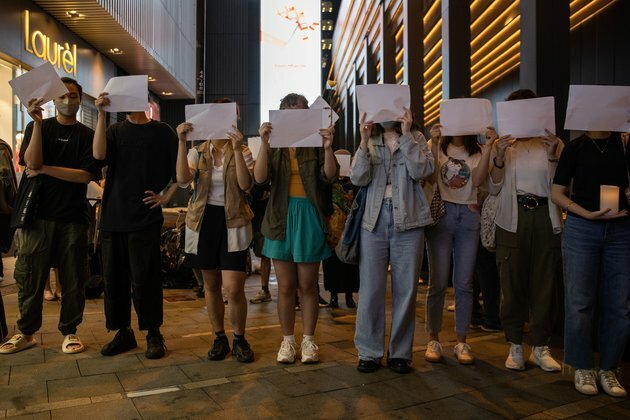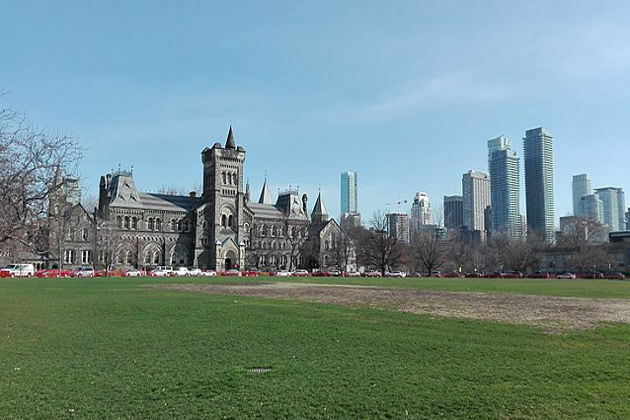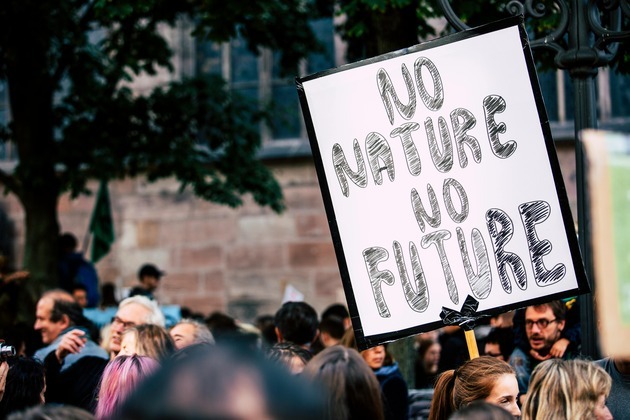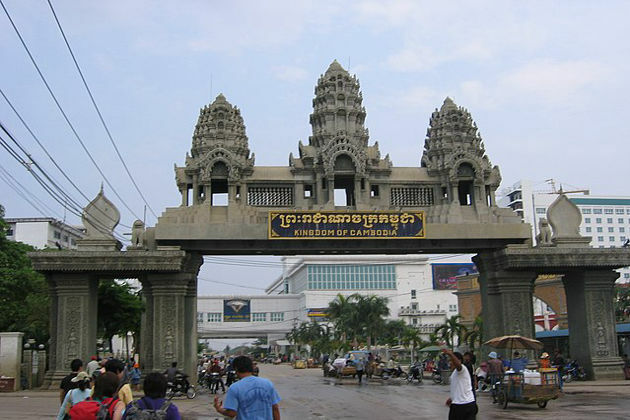How China's response to zero-COVID protests could affect global business
The Conversation
02 Dec 2022, 20:09 GMT+10

The recent protests in China against the country's zero-COVID policy have been unprecedented in their scale, intensity and distribution. Protestors numbering in the thousands were reported in dozens of cities. Not since 1989's Tiananmen Square protests has there been such widespread civil disobedience.
The protests do not signify the imminent collapse of the Chinese Communist Party regime, but they are a big challenge to the authority of the party's general secretary Xi Jinping, the president of China. They also have far-reaching implications for China's domestic economy and society, as well as for international firms and the global economy.
International reaction to the protests was a mix of awe at the scale and fear about the consequences. But there was also hope that COVID controls might be loosened further, reopening China and unblocking recent global supply chain bottlenecks.
World stock markets dived initially on the Monday following the first weekend of protests on November 26 and 27. By Tuesday, a massive police presence at protest sites and early arrests of protestors led to a market rebound as foreign investors poured back into Chinese markets.
Investors now appear to have discounted further protests and are reportedly optimistic that Beijing will be forced to change course and open up the economy again. There have already been signs of a loosening of controls, with vice-premier Sun Chunalan quoted as saying the current virus iteration is less virulent. However, enthusiastic investors risk ignoring the long-term challenges of China's current political culture, domestic economy and outlook for international business.
Shifting Chinese policy
At the heart of contemporary political culture in China is regime survival. Xi wants China to be rich and powerful, but believes controlling domestic politics and addressing geopolitical challenges matters most. The economy comes second to security, a view Xi has expressed many times and reiterated at the Party Congress in October. International investors need to realise this because China's domestic economy and politics affect international firms involved with the country, as well as global markets.
So it's important for investors and businesses to note that China is not prepared for a surge in COVID infections. Only two-thirds of the over-60s have had a third booster vaccination, although the government wants to increase this. But opening the economy again could bring a massive increase in deaths because of China's fragile health system, insufficient ICU beds and low natural immunity.
Any economic growth from the lifting of COVID controls is also likely to be short-lived for China. The domestic economy is floundering. Growth has been anaemic since 2020, after discounting initial bounces from periodic loosening. GDP grew just 3% for the first three quarters of 2022 and will miss the government's target of 5.5%.
House prices and investment have also been on a slide. Apartment prices have been flat or negative for most of the 70 largest cities in China since 2020 - both for new builds and resales. Investment in residential floor space is down 38.5% for the year to October. Property sector woes have squeezed the revenues of local government, which bears the costs of Beijing's dictates to control virus outbreaks.
Read more: China property crisis: why the housing market is collapsing - and the risks to the wider economy
Meanwhile, for the first ten months of 2022, consumer retail sales were down 0.5% and sales of food services were down 8.1% - although that is better than the 23% year-on-year fall during the spring 2020 lockdowns in Shanghai, Sichuan and Guangdong. And the Purchasing Managers' Index (which gives an idea of how positive the manufacturing and services industries are feeling) declined in October to 49.2 and has been below 50 for six of the first ten months this year. Any number less than 50 indicates the economy is contracting.
China's global role
Internationally, China's role as the motor of the global economy could diminish. The continuing slowing of the Chinese economy - whether COVID controls are lifted or not - and Beijing's prioritising of security over the economy will push international firms to act.
While many firms have already relocated, others have stayed - such as Apple, which gets much of its new iPhone Pro stock from the large Foxconn-owned plant in Zhengzhou. This plant was the scene of battles between police and workers in November protesting COVID controls and lack of benefits. Apple's share price has held up remarkably well this year, as have those of major carmakers, but all are heavily dependent on China as a market and manufacturing base.
For some politicians in the west, one solution is to accelerate decoupling from China. But doing so is neither feasible nor desirable despite their justified security concerns. Science and technology innovation is international in scope and depends on openness and exchange to a certain extent. It will be difficult to freeze China out if western firms want to share in Chinese growth and developments in these areas.
Recent US efforts to restrict the sale of semiconductors have come about only because of a belated realisation of how aggressive China has been acquiring technology since the 2000s. Too many people in the west were not reading Xi's speeches in the early 2010s, only waking up around 2016 after Beijing had laid bare its strategy in the Made in China 2025 plan.
The pursuit of profits in China's very large domestic market has led international firms to neglect the politics of the China marketplace. It's time to realise that the business of government in China ultimately rests on ensuring business serves the interest of the party-state and its goals.
Author: Stephen Morgan - Professor of Economic History (Emeritus), University of Nottingham 
 Share
Share
 Tweet
Tweet
 Share
Share
 Flip
Flip
 Email
Email
Watch latest videos
Subscribe and Follow
Get a daily dose of Central Asia Times news through our daily email, its complimentary and keeps you fully up to date with world and business news as well.
News RELEASES
Publish news of your business, community or sports group, personnel appointments, major event and more by submitting a news release to Central Asia Times.
More InformationInternational
SectionFox faces $787 million lawsuit from Newsom over Trump phone call
DOVER, Delaware: California Governor Gavin Newsom has taken legal aim at Fox News, accusing the network of deliberately distorting...
DeepSeek faces app store ban in Germany over data transfer fears
FRANKFURT, Germany: Germany has become the latest country to challenge Chinese AI firm DeepSeek over its data practices, as pressure...
Canadian option offered to Harvard graduates facing US visa issues
TORONTO, Canada: Harvard University and the University of Toronto have created a backup plan to ensure Harvard graduate students continue...
Israel should act fast on new peace deals, Netanyahu says
JERUSALEM, Israel: Israeli Prime Minister Benjamin Netanyahu says that Israel's success in the war with Iran could open the door to...
UN offer rejected in Dreamliner crash investigation
NEW DELHI, India: India has decided not to allow a United Nations (UN) investigator to join the investigation into the recent Air India...
UN climate agency gets 10 percent boost amid global budget cuts
BONN, Germany: Despite widespread belt-tightening across the United Nations, nearly 200 countries agreed this week to increase the...
Asia
SectionDeepSeek faces app store ban in Germany over data transfer fears
FRANKFURT, Germany: Germany has become the latest country to challenge Chinese AI firm DeepSeek over its data practices, as pressure...
Thailand-Cambodia tensions rise as border rules tighten
BANGKOK, Thailand: This week, Thailand implemented land border restrictions, including a ban on tourists traveling to Cambodia, as...
"India to work with ASEAN nations to develop cruise tourism hub of global south": Sarbananda Sonowal
Chennai (Tamil Nadu) [India], June 30(ANI): The Union Minister of Ports, Shipping & Waterways (MoPSW), Sarbananda Sonowal inaugurated...
Xupan: A step towards strengthening sustainable livelihoods for HEC-hit villagers in Eastern Assam
Guwahati (Assam) [India], June 30 (ANI): The region's premier biodiversity conservation organisation, Aaranyak, has been working tirelessly...
India powers global festivities as World celebrates International Kho Kho day
New Delhi [India], June 30 (ANI): India spearheaded the festivities in the global observance of International Kho Kho Day, with celebrations...
World Super Kabaddi League kicks off new chapter for Kabaddi
New Delhi [India], June 30 (ANI): World Super Kabaddi League (WSKL) and the Uttar Pradesh Kabaddi League (UPKL) announced the launch...












